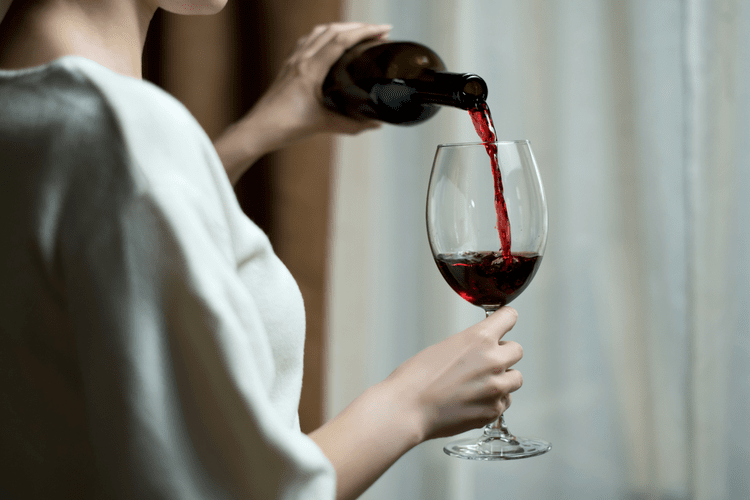In the present study, which focused on the effects of alcohol consumption on sleep quality among adults aged 20 years and older, we found that AUDIT-KR and PSQI-K scores were significantly correlated among male subjects. In particular, we learned that alcohol consumption patterns are related to subjective sleep quality, sleep duration, and sleep continuation. In contrast, sleep latency was not correlated with alcohol consumption level. In other words, it appears that men with more alcohol consumption suffer from overall poor sleep quality, experience difficulty in maintaining sleep rather than falling asleep, suffer from shorter overall sleep duration, and therefore have worse subjective sleep quality. Among factors that disturb sleep, it was learned that snoring, in particular, is linked with alcohol consumption.
All this is to say that “just quitting” isn’t always easy, even when alcohol use harms your sleep and well-being. Withdrawal symptoms are a whole different world than alcohol-induced sleep problems. Because on top of sleep disturbances, you can also experience anxiety, shakiness, headaches, brain fog, and a range of other detox symptoms. Among those with AD, treatment-seeking subjects have been demonstrated to https://ecosoberhouse.com/article/how-long-does-a-hangover-last-how-to-ease-a-hangover-tips/ have a higher Periodic Limb Movement Index (PLMI) as compared to controls (Brower and Hall, 2001). A longitudinal study involving patients sober for 2–3 weeks after withdrawal, demonstrated higher baseline PLMI and PLMI with arousals versus healthy controls (Gann et al., 2002). At the 6-month follow-up, subjects with AD who relapsed had significantly higher PLMI and PLMI with arousals, than those who did not.
Are there any differences in how alcohol affects males or females?
People suffering from depression may already have disrupted circadian rhythms, and the presence of even moderate amounts of alcohol may push those rhythms further out of sync. The gut and its microbiome are often referred to as the body’s second brain, and operate under powerful circadian rhythm activity. The circadian disruption that can result from alcohol consumption contributes to leaky gut syndrome, according to research. Circadian rhythms thrown out of sync can weaken the lining of the gastrointestinal tract, making it more vulnerable to permeation—that’s the leakiness that allows bacteria, toxins, and food to leave the intestines and enter the bloodstream. It’s not because I don’t appreciate a glass of wine with a great meal, or a few beers on a hot summer evening. It’s because I know what alcohol can do to sleep and healthy circadian rhythms.
- Alcohol can cause the muscles in your throat to relax, which creates more resistance when breathing.
- The studies of abuse liability of benzodiazepines in alcoholic persons suffer from the bias of only studying alcoholics seeking treatment.
- Estimated
lifetime alcohol consumption was higher in alcoholic men than women, and the women had
longer periods of sobriety prior to testing on average. - Alcohol relaxes upper airway dilator muscles (decreasing airway patency) increasing nasal and pharyngeal resistance (58,59), and it prolongs the time required to arouse or awaken after an apnea occurs (60).
- You can manage the negative effects of alcohol on sleep by giving your body ample time to metabolize alcohol before falling asleep.
Research has shown that those who drink large amounts of alcohol before bed are more likely to take less time to fall asleep, but are also more likely to experience sleep disruptions and decreases in sleep quality. However, since the effects of alcohol are different from person to person, even small amounts of alcohol can reduce sleep quality for some people. In fact, between 35% and 70% of individuals who use alcohol have insomnia.3 It may seem surprising, does alcohol cause insomnia considering that alcohol is a depressant, yet alcohol is known to interfere with fundamental aspects of sleep quality. Before we look at the effects of alcohol on sleep in detail, here’s the basic bottom line. The more you drink, and the closer your drinking is to bedtime, the more it will negatively impact your sleep. Even moderate amounts of alcohol in your system at bedtime alters sleep architecture—the natural flow of sleep through different stages.
Wait Between Drinking and Bedtime
None of the three dosages revealed significant improvement over placebo in sleep quality in persons without psychiatric disorders. During the first two weeks after detoxification, five days of carbamazapine was superior to lorazepam in improving sleep for patients with mild to moderate alcohol withdrawal (87). Gabapentin, an anticonvulsant, in an open label, uncontrolled study, also showed promise as a safe and effective treatment for alcohol-dependent patients with insomnia during early recovery (88). Alcohol is commonly used as a sleep aid–that is, an agent for initiating sleep. Alcohol consumed in the evening has generally predictable effects on REM sleep, slow wave sleep, and sleep time and continuity, but effects on sleep latency (time to fall asleep) are more variable (Table 1). Sleep researchers have performed experiments with healthy non-alcoholic subjects using alcohol doses ranging from 0.16 to 1.0 g/kg (one to three ounces), yielding breath alcohol concentrations as high as 105 mg percent (11).
Alcohol use and the genesis of sleep disturbances can exert a strong negative pressure on already vulnerable physiological systems, leading to the onset of various illnesses and, although less important, decreased work performance. Alcohol use was assessed using a short form of the Alcohol Use Disorders Identification Test-Concise (AUDIT-C), a modified version of the 10-question Alcohol Use Disorders Identification Test (AUDIT) developed by the World Health Organization. This test is a brief self-reported alcohol screening test effective for assessing unhealthy alcohol use.
Alcohol and Sleep
Pharmacological alternatives commonly prescribed for sleep disorders in alcohol-dependent patients include sedating antidepressants, antihistamines, and low-potency neuroleptics, but these agents have not been rigorously studied as sleep agents (85). Trazodone, a sedating antidepressant, is the medication most commonly prescribed by addiction experts for insomnia among sleep-disturbed alcoholics (85). We are performing an ongoing clinical trial to examine its effect on sleep and alcohol outcomes in early recovery. Ritanserin, a specific 5-hydroxytryptamine antagonist was tested at three doses against placebo over 6 months in a randomized trial with 493 detoxified alcohol-dependent individuals (86).
Read on to find out how alcohol can affect your sleep, and why—as well as insight into the health benefits of getting enough shut-eye. The key is to drink in moderation and give yourself time before going to bed so the alcohol can clear your system. Ethical review and approval were waived for this study, as the study, being non-invasive and involving simple data collection, was conducted on patients seen in a private practice. At the same time, it should be emphasized that, although there was no need for an evaluation by the ethics committee, for the reasons outlined above, the study was conducted considering the guidelines of the Declaration of Helsinki.
Ways to avoid alcohol causing sleepiness
It is recommended that alcohol not be consumed in the last four hours before bedtime. Even though alcohol may help you fall asleep, it interferes with the quality of your sleep. If you drink alcohol at night and have trouble falling or staying asleep, you might wonder how long you should wait between your last drink and going to bed so your sleep isn’t impacted. Over time, poor quality sleep can have a negative influence on many different aspects of your life, including your long-term health. If you’re experiencing sleeping issues, whether related to alcohol consumption or not, consider talking to your health care provider or a sleep specialist.
- We analyzed the association between scores for all subcategories of the PSQI-K and the AUDIT-KR and then analyzed the correlation between AUDIT-KR and global PSQI-K scores.
- Due to the lack of uninterrupted sleep you can experience overnight, you are more prone to feeling excessively tired throughout the next day.
- Insomnia occurs despite the opportunity and desire to sleep, and leads to excessive daytime sleepiness and other negative effects.
- PSG sleep findings during the first 8 weeks of abstinence include increased SOL and stage 1 sleep and decreased TST and SWS % (Gillin et al., 1990b, Gillin et al., 1990a, Moeller et al., 1993, Le Bon et al., 1997, Brower et al., 2001a).
The combination of OSA and alcohol increases a person’s risk of heart attack, stroke and sudden death (64). Alcohol’s worsening of apneic events, increasing sleep disruption and daytime fatigue, can also impair driving and increase rates of motor vehicle accidents. Among OSA subjects who consumed 14 or more drinks per week, self-reports of sleep-related accidents are fivefold higher compared to those who drink lesser amounts (65). Chronic insomnia is generally defined as difficulty initiating or maintaining sleep for a period longer than three weeks. Briefer periods of sleep disturbance are most often stress-related or due to acute illness (4). Insomnia frequently has a mix of contributing causes, and clinicians need to assess psychological (e.g., depression and anxiety), medical (e.g., pain and obstructive sleep apnea), and lifestyle-related (e.g., caffeine consumption) risk factors (5, 6).
It also leads to lighter, more restless sleep as the night wears on, diminished sleep quality, and next-day fatigue. Differences in activity in the fast frequency bands (beta and gamma) during
sleep between alcoholics and controls are less consistent. Feige et al. (2007) reported elevated beta activity in REM and gamma activity in
stage 2 NREM sleep, but only in data from the adaptation nights, with no differences for
subsequent placebo nights from their drug study. Irwin et
al. (2002) reported a trend for elevated beta activity in alcoholics across the
entire night at baseline that became a significant difference during a recovery night
following a night of partial sleep deprivation. Colrain et
al. (2009b) did not see any differences between alcoholics and controls in high
frequency EEG activity during sleep.




